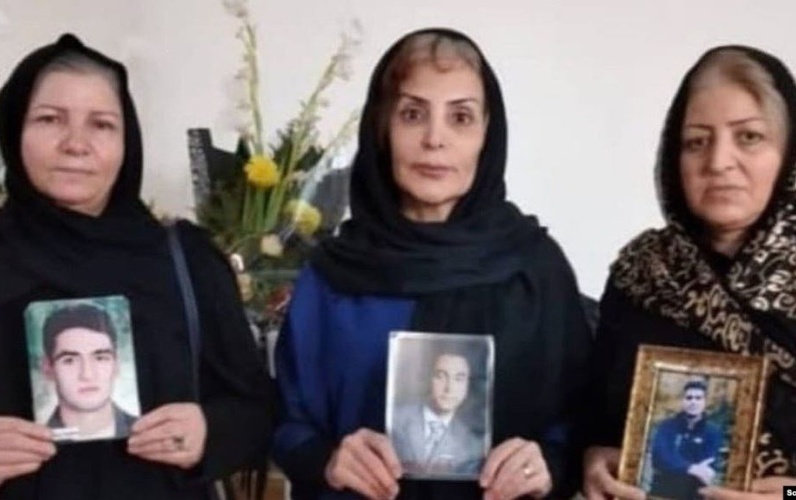Mothers hold up photos of their sons killed in November 2019 protests in Iran
UPDATE, 0925 GMT:
Foreign Ministry spokesman Saeed Khatibzadeh has complained about the latest US sanctions over alleged human rights abuses in Iran:
Even amid #ViennaTalks, US cannot stop imposing sanctions against Iran.
Washington fails to understand that 'maximum failure' & a diplomatic breakthrough are mutually exclusive.
Doubling down on sanctions won't create leverage—and is anything but seriousness & goodwill.
— Saeed Khatibzadeh | سعید خطیبزاده (@SKhatibzadeh) December 7, 2021
Khatibzadeh did not comment on the content of the US Treasury’s claims about suppression of protests, including detentions, torture, and killings.
ORIGINAL ENTRY: The US Treasury has sanctioned Iranian security agencies and officials over the “violent suppression” of protests and abuses of political prisoners.
The penalties come days after the resumption of talks in Vienna over the 2015 Iran nuclear deal.
See also Latest Iran Nuclear Talks End, as Tehran Undoes Progress from Spring
The Treasury designated the Special Units of Iran’s Law Enforcement Forces and the Counter-Terror Special Forces (NOPO) for “ordering, controlling, or otherwise directing, the commission of serious human rights abuses”.
Among the individuals sanctioned are Hassan Karami, the commander of the LEF Special Units; Mohsen Ebrahimi, the commander of NOPO; Seyed Reza Mousavi Azami, commander of a brigade of the LEF Special Units; Gholamreza Soleimani, commander of the paramilitary Basij; Leila Vaseghi, the governor of the holy city of Qods in central Iran; Revolutionary Guards interrogators Ali Hemmatian and Masoud Safdari; Soghra Khodadadi, the director of Qarchak Women’s Prison; and Revolutionary Guards Brig. Gen. Mohammad Karami.
Karami is cited for his command as the LEF Special Units “employed excessive and lethal force against Iranian unarmed protestors”, including the nationwide demonstrations in November 2019 which killed at least 304 in the marches. He was sanctioned by the European Union in April 2021 for his role in the suppression.
See also Iran’s Mass Arrests, Disappearances, and Torture After November 2019 Protests — Amnesty
Vaseghi is accused of ordering security forces to shoot unarmed protestors in November 2009, with dozens of civilians killed or wounded. She was also sanctioned by the EU in April 2021.
The Treasury said Hemmatian and Safdari have abused political detainees, including at Tehran’s Evin Prison, with beatings and whippings during interrogations and forced, televised “confessions”.
Khodadadi reportedly ordered and directly participated in a December 2020 attack on political detainees in Qarchak Prison. The women were beaten with batons and stun guns, after they had sought exercise of the right to freedom of expression.


“Karami is cited for his command as the LEF Special Units “employed excessive and lethal force against Iranian unarmed protestors”, including the nationwide demonstrations in November 2019 which killed at least 304 in the marches.”
Just to point out that the official reported toll was 230, which included members of the security forces and Baseej volunteers and many bypassers who were not even protesting at the time: https://www.france24.com/en/20200601-iran-says-230-killed-in-november-protests
Amnesty has since revised its figure from 304 to 324 deaths: https://www.amnesty.be/IMG/pdf/20211116_iran_details_of_324_deaths.pdf
Raisi is asking to identify those responsible for currency fall….
https://www.radiofarda.com/a/ibrahim-raisi-s-order-to-identify-the-causes-of-disruption-in-the-foreign-exchange-market/31599257.html
I think he is genuinely that stupid.
“Doubling down on sanctions won’t create leverage—and is anything but seriousness & goodwill.”
Isn’t iri enriching uranium to 60% exactly that???